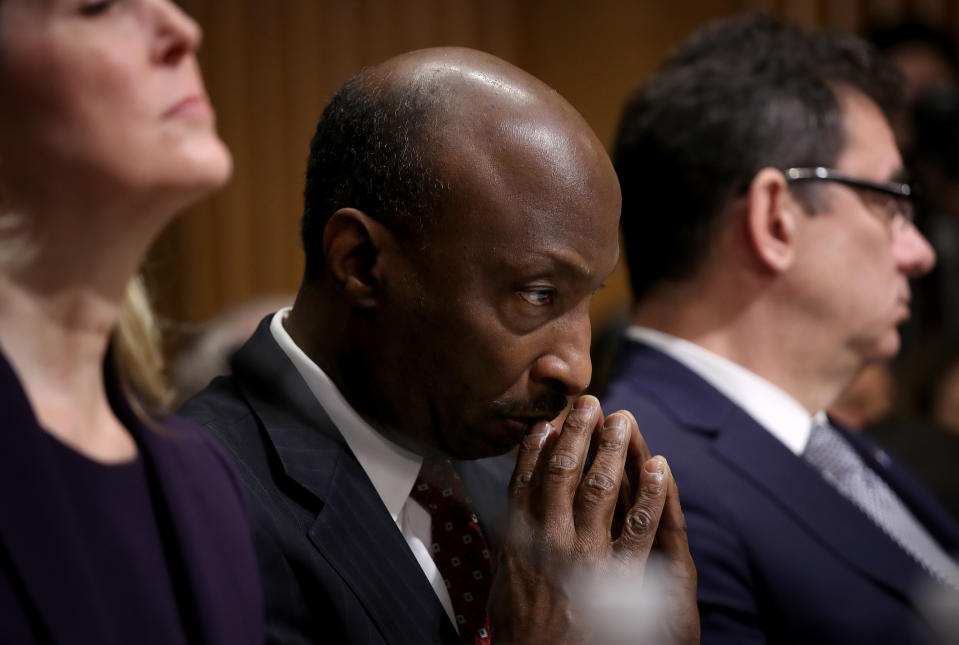Pharma industry is 'right in the crosshairs,' Merck CEO Kenneth Frazier says
President Donald Trump and House Speaker Nancy Pelosi (D-CA) are in a battle over impeachment but their aides have found time to discuss how to cut drug prices. Attention from political leaders is not lost on Kenneth Frazier, the chief executive of top pharmaceutical company Merck (MRK), who said on Thursday that the pharmaceutical industry “is right in the crosshairs.”
“Every person running for president has a plan to reduce pharmaceutical pricing,” he adds, speaking to Yahoo Finance Editor-in-Chief Andy Serwer at the All Markets Summit. “Some of them I think are legitimate plans, some of them will hurt innovation, which we don’t want.”
Frazier referred to a Gallup poll that found the pharmaceutical industry is the least popular sector. He did not specify which poll but was likely alluding to a survey released by Gallup last month, which found that 27% of Americans felt positively about the pharmaceutical industry and 58% felt negatively about it, a net 31-point negative rating that ranked it last among all industries.
“We’re below Congress, below bankers, below tobacco,” Frazier says. “That’s not a good place to be.”
“That’s not a good thing for an industry that exists to save people’s lives,” he adds.
Increased competition in the sector has also put companies under pressure, Frazier said.

“There are a lot of pressures on our business model,” he says. “There are pricing pressures in the U.S., there are pricing pressures around the world.”
Merck exceeded Wall Street expectations in second quarter earnings released in July, boasting revenue of $11.76 billion. A significant portion of the company’s recent success has stemmed from sales of Keytruda, a cancer drug.
Frazier has worked at the firm for more than two decades, and became its chief executive in 2011. The company has reportedly begun to ready itself for his departure, launching a search for a successor that has focused on internal candidates.
Republican and Democratic leaders, including Trump and Pelosi, have criticized pharmaceutical companies like Merck for what they consider to be excessively high drug prices. In recent weeks, despite the launch of an impeachment inquiry by House Democrats, aides to Trump and Pelosi have continued to discuss a bipartisan bill that would limit the cost of prescription drugs.
In 2016, Frazier told the Senate Finance Committee that companies cannot “unilaterally lower list prices without running into financial and operating disadvantages.”
Frazier entered a national political firestorm in August 2017, when he stepped down from a business advisory council for President Donald Trump, following remarks from Trump that appeared to draw equivalence between white supremacists and counter-protesters at a rally in Charlottesville, Virginia. In response, Trump immediately criticized Frazier, saying the resignation would afford him "more time to LOWER RIPOFF DRUG PRICES!”
Speaking about the incident a few months later, Frazier told The New York Times, “I think words have consequences, and I think actions have consequences. I just felt that as a matter of my own personal conscience, I could not remain.”
Read more:
Former Cisco CEO John Chambers: 'The extremes are controlling a lot of politics'
The Property Brothers say these are two of the best cities for real estate investment
Follow Yahoo Finance on Twitter, Facebook, Instagram, Flipboard, SmartNews, LinkedIn, YouTube, and reddit.

